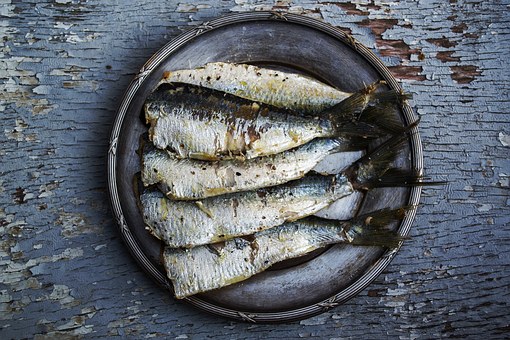Can what you eat influence the severity of your picking?
Online test
Find out the severity of your symptoms with this free online test
While body-focused repetitive behaviours (BFRBs) such as excoriation disorder are gaining increased awareness, our knowledge about the disorder is still in its infancy. For example, even though research has found evidence of some plausible causes for compulsive skin picking, there is still no known single definitive cause. Some evidence points to hormonal imbalances, some indicates the cause is neurobiological, while genetic correlation also holds merit. We may not be able to change our genetic make-up, but we certainly can influence our neurobiological processes and our hormone levels through diet. Could what we eat therefore aggravate the urge to pick, or even place us at higher risk for developing a skin picking disorder in the first place?
Yes! Food has a role to play in severity of skin picking.
What you choose to eat can influence the urge to pick your skin, because skin picking is closely related to emotional health, and food influences your physical and emotional wellness. There is limited empirical evidence showing a direct correlation between any specific foods and skin picking, however there are theories linked to the cause of skin picking that can inform a connection with the food we eat or do not eat.
One of the theories centres on the role of neurotransmitters in skin picking and hair pulling behaviours. It is believed that the amino acid glutamate acts as an excitatory neurotransmitter in the brain, which means it stimulates areas in the brain or other parts of the nervous system, and that an excess of glutamate contributes to problems in mood and anxiety. Glutamate occurs naturally in many foods such as wheat and dairy. The concern is that there is an overabundance of free glutamate (which is more rapidly absorbed than bound glutamate) in processed and packaged foods because of its flavour enhancing properties. Decreasing intake of processed and packaged foods may lower glutamate absorption, which can decrease the urge to pull. We all know that a balanced diet is the key to general health and wellness, but how important are the various food groups when it comes to skin picking?
Breaking Down the Food Groups
Water: Drinking enough water combats skin disorders like psoriasis, wrinkles and eczema. It also increases the metabolic rate and improves digestive system to flush out toxins from the body. This in turn gives you a healthy and glowing skin.
Fruit and Vegetables: Eating fruit provides health benefits, people who eat more fruits and vegetables as part of an overall healthy diet are likely to have a reduced risk of some chronic diseases. Fruits provide nutrients vital for health and maintenance of your body. Diets rich in fruits and vegetables have been shown to promote positive moods.
Protein: Eating protein at each meal can be helpful in reducing the urge to pick your skin because of the important role of proteins in the neurotransmitters in the brain. Protein can be found in foods like whole Milk, Egg, Chicken, Fish, Pulses and nuts. An amino acid supplement can also be taken to ensure adequate levels of protein in your diet.
Fat: The word fat has connotations of being fat and undesirable, so it’s no wonder that fat as a food source is painted as the villain. However, it is important to note that fat is in fact a crucial nutrient as long you are consuming the RIGHT fat. In most modern diets, we have an unhealthy imbalance of Omega-6 to Omega-3 due from all the processed foods we eat. Omega-3 has been shown to have a positive effect on emotional regulation, but it can also help reduce acne, due to their anti-inflammatory nature. To rectify this balance, it is advisable to cut down on processed foods, opting instead for fresh, whole foods, in as close to its natural state as possible. Cold water fish such as salmon, tuna and mackerel are good sources of Omega-3, but is also recommended that you take an Omega-3 supplement daily.
Sugar: In the opposite camp to fat we have sugar, all sweet, but not so innocent. If any food group is to be the enemy it should be sugar, especially refined sugars. Physically sugar acts as an inflammatory agent, which negatively impacts the immune system, the brain and other bodily functions. Research suggests that heavy sugar consumption is linked to an increased risk of depression and levels of anxiety. Since we have seen the links between depression and anxiety with levels of skin picking, it would make sense that decreasing your sugar intake can improve your ability to manage skin picking.
Holistic Approach
While many people with excoriation disorder have had success with reducing skin picking urges through diet, most would still advocate that diet be looked at in combination with other treatment options such as cognitive behaviour therapy (CBT). While there may very well be a neurobiological cause for the urge to pick, there is an undeniable psychological component to the behaviour that needs to be addressed too. As with all disorders, a holistic view of health and wellness is the key to ensuring sustainable management of the disorder. Most recent studies by experts in the field have shown that a combination of CBT techniques known as the Comprehensive Behavioral Intervention (ComB) has shown the most significant long term results.
Online test
Find out the severity of your symptoms with this free online test
Start your journey with SkinPick
Take control of your life and find freedom from skin picking through professional therapy and evidence-based behavioral techniques.
Start Now



